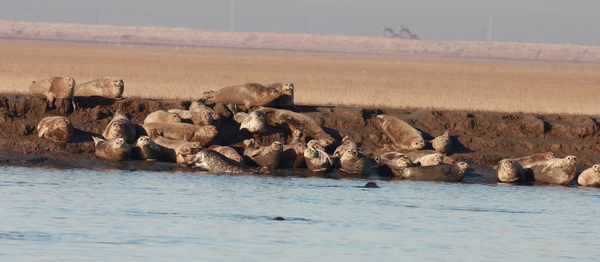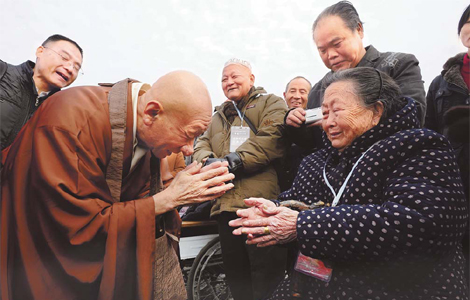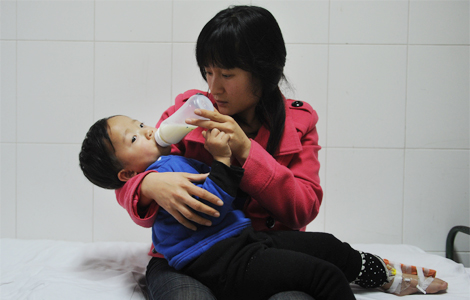Road to give seal habitat wide berth
Updated: 2011-12-14 08:03
By Wu Yong and Liu Ce (China Daily)
|
|||||||||||
|
 |
|
Harbor seals bask in the sun in their habitat in Panjin, Liaoning province, in March. The Panjin government intends to move a planned road 6 km to the south to protect the habitat. Provided to China Daily |
PANJIN, Liaoning - Officials in this Northeast China city are considering modifying a highway project to protect endangered harbor seals, according to the Panjin Harbor Seal Protection Association.
The 12.5-kilometer road is part of a seashore highway project begun in 2004 to link the six cities in Liaoning province that line China's Bohai Bay. The road construction was finished in five cities by the end of 2009, leaving Panjin struggling with environmental-protection issues.
The Panjin government plans to move the route 6 km to the south to avoid the harbor seals' central habitat, according to Tian Jiguang, who set up the seal protection association in 2007.
"Although the government hasn't officially announced the plan, and it needs further research, I am nevertheless really happy that our work will help protect cute animals. This success shows that good interaction between government and the public helps resolve problems," Tian said.
The harbor seal, listed by the central government as a protected animal, travels to China from South Korea between December and May each year to give birth in Panjin, said Lu Zhichuang, a researcher from the Liaoning academy of fishery sciences.
Because of oil exploitation in the bay, the harbor seal population has plummeted in the Panjin area from 10,000 in the early 1930s to nearly 2,000 today.
Lu warned that the mammal is sensitive to water, soil and sound pollution, and that it might leave for good if the environment keeps deteriorating.
Tian told China Daily that the government's decision comes after three months of hard work from throughout society including non-governmental organizations, media and academics.
On Feb 16, the Panjin government solicited public opinion on the road project. Tian tried to contact the Panjin Transportation Bureau, but without success. He then launched an online campaign to seek help from netizens. One post on his micro blog was forwarded more than 10,000 times in less than one month.
More than 20 environmental-protection organizations around the nation expressed support and investigated the issue in Panjin. Soon, the Panjin government invited Tian for negotiations, which ultimately yielded the good result.
"This is not only about animal protection, it also sets a good example of communication between government and the public. Listening to the people can avert potential conflicts," said Tang Jun, a researcher from the social policy research center of the Chinese Academy of Social Sciences.
However, a contractor on the road project who declined to give his name, estimated that the route change would increase the cost of the project by millions of yuan.
Zhu Chengpei in Daliancontributed to this story.
Hot Topics
HIV/AIDS, Egypt protest, Thanksgiving, climate change, global economic recovery, home prices, high-speed railways, school bus safety, Libya situation, Weekly photos
Editor's Picks

|

|

|

|

|

|







